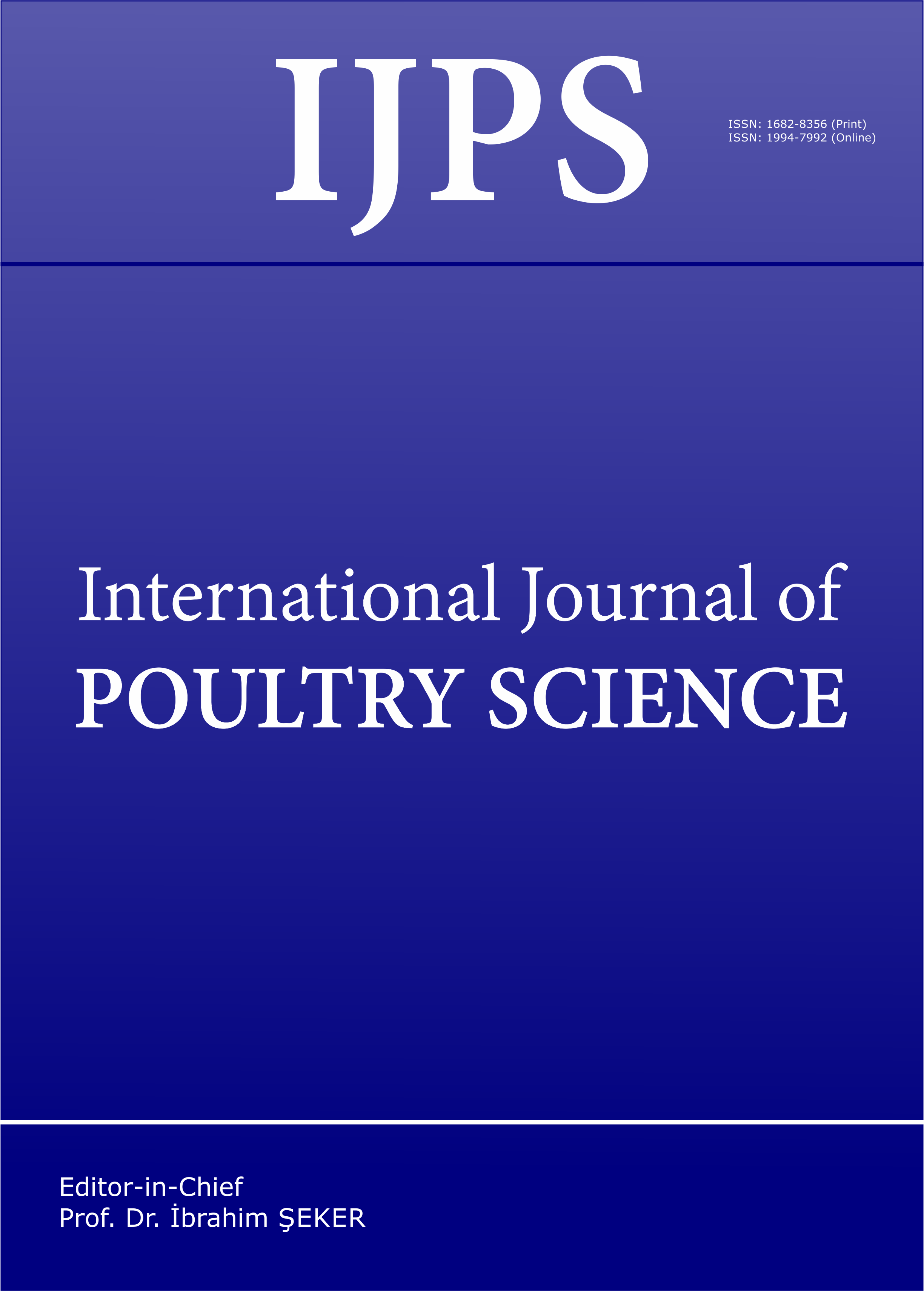Use of a Caprine Serum Fraction-Immunomodulator to Reduce Mortality in Commercial and Large-Bodied Turkey Lines Infected with Pasteurella multocida
DOI:
https://doi.org/10.3923/ijps.2008.818.824Keywords:
Caprine serum, caprine serum fraction-immunomodulator, mortality, Pasteurella multocida, TurkeysAbstract
The effectiveness of an injected caprine serum fraction-immunomodulator (CSF-I2) as an immunostimulant in male and female F-line and commercial turkey poults infected with fowl cholera (Pasteurella multocida) was examined in separate trials. In the first 2 of 3 controlled trials, the effects of an i.m. injection of CSF-I2 given 24 h prior to a P. multocida challenge, administered by s.c. injection, on mortality and days to death in F-line turkeys was determined. The CSF-I2 reduced mortality but did not affect average number of days to death of F-line turkeys across trials and sexes when administered 24h prior to a P. multocida challenge. In the third trial, the effects of an i.m. injection of CSF-I2 given to a commercial line of turkeys 24h prior to an s.c. injection of P. multocida on mortality and days to death were determined. While positive control commercial turkey poults experienced an 85% level of mortality across sex, the administration of CSF-I2 did not significantly reduce percentage mortality or average number of days to death. The difference in the effects of CSF-I2 on mortality in F-line and commercial turkey poults challenged with P. multocida suggests that CSF-I2 did not impart immunostimulation to commercial turkeys as it did in F-line turkeys that were infected with P. multocida. Therefore, genetic variation in turkeys may be an important consideration before using CSF-I2 as an immunomodulator to protect juvenile turkeys against fowl cholera.
Downloads
Published
Issue
Section
License
Copyright (c) 2008 Asian Network for Scientific Information

This work is licensed under a Creative Commons Attribution 4.0 International License.
This is an open access article distributed under the terms of the Creative Commons Attribution License, which permits unrestricted use, distribution and reproduction in any medium, provided the original author and source are credited.

